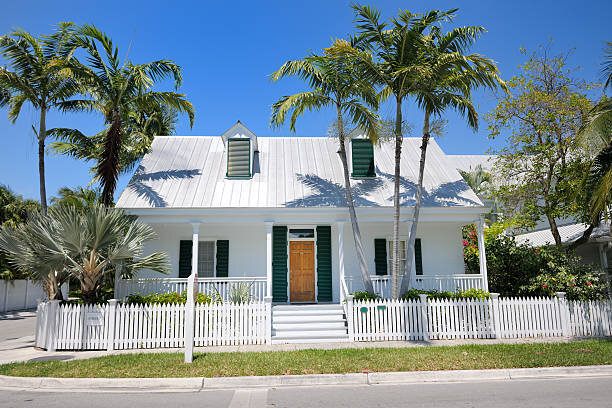
Introduction:
House flipping has become a popular investment strategy across the United States, and Florida is no exception. With its thriving real estate market, warm climate, and a steady influx of new residents, Florida offers plenty of opportunities for investors looking to flip houses for profit. However, like any investment, house flipping comes with its fair share of challenges and potential pitfalls. In this article, we will explore four common mistakes that investors often make when flipping houses in Florida and provide insights on how to avoid them.
Mistake #1: Neglecting Due Diligence
Due diligence is the foundation of successful house flipping. In Florida, due diligence becomes even more critical because of the state’s diverse real estate market. Here’s a more in-depth look at what you should do:
a) Study the Local Market: Florida’s real estate market varies significantly from city to city and even neighborhood to neighborhood. Investors must research the specific area where they plan to flip a house. Analyze recent sales data, property values, and trends in that locality. Understanding whether it’s a buyer’s or seller’s market in your target area is crucial. This knowledge will help you make informed decisions about the types of properties to buy and how to price them.
b) Thorough Inspections: Invest in professional home inspections to uncover any hidden problems with the property. Florida homes can be susceptible to issues like mold, termites, or hurricane damage, depending on the region. An inspector can help identify these issues so that you can factor in repair costs into your budget.
c) Property History Verification: Ensure that the property you’re interested in doesn’t have any outstanding liens, code violations, or property tax arrears. Check for any historical issues that might impact the property’s value or the cost of bringing it up to code.
Mistake #2: Underestimating Renovation Costs
Accurate budgeting is essential when flipping houses in Florida, where renovation costs can vary significantly. Here’s how to mitigate this challenge:
a) Obtain Multiple Quotes: Seek multiple quotes from contractors and suppliers for your renovation project. Having several estimates allows you to compare costs and select the most cost-effective options.
b) Contingency Fund: Always allocate a contingency budget to account for unforeseen expenses. Renovation projects often encounter unexpected challenges, such as structural issues or the need for additional repairs. A contingency fund provides a safety net to prevent budget overruns.
c) Prioritize Essential Improvements: Focus your renovation efforts on improvements that will add the most value to the property. In Florida, features such as a well-maintained roof, hurricane-resistant windows, and modern kitchens and bathrooms can significantly boost a home’s marketability.
Mistake #3: Overpricing or Underpricing the Flipped Property
Pricing your flipped property correctly is vital to a successful sale. In Florida’s competitive real estate market, striking the right balance is crucial:
a) Analyze Comparable Sales (Comps): Research and compare recent sales of similar properties in the same neighborhood. Pay attention to factors such as square footage, number of bedrooms and bathrooms, and overall condition. This will help you determine a competitive and realistic selling price.
b) Consult with a Real Estate Agent: Local real estate agents are invaluable resources when it comes to pricing your property accurately. They have a deep understanding of the market dynamics and can provide insights into current trends and buyer preferences.
c) Consider Market Trends: Florida’s real estate market can be influenced by seasonal trends, economic conditions, and other factors. Stay informed about these trends to time your sale effectively and adjust your pricing strategy as needed.
Mistake #4: Ignoring Local Regulations and Permitting
Navigating local regulations and permits is essential for a smooth house flipping process in Florida:
a) Familiarize with Zoning Laws: Different areas in Florida may have distinct zoning regulations and property use restrictions. Ensure that your renovation plans align with these regulations. Ignoring zoning laws can result in costly setbacks and legal issues.
b) Obtain Necessary Permits: Work closely with local authorities to secure all the permits required for your renovation project. This may include building permits, environmental permits, and more. Failing to obtain permits can lead to fines and delays in your project.
c) Stay Updated on Code Changes: Florida’s building codes and regulations may evolve over time. It’s crucial to stay informed about any updates or changes that could affect your renovation plans. Consulting with a local architect or contractor who is well-versed in the latest building codes can help you remain compliant.
Conclusion:
House flipping in Florida can be a lucrative investment opportunity, but it’s not without its challenges. To succeed in this competitive market, investors must avoid common mistakes such as neglecting due diligence, underestimating renovation costs, mispricing properties, and ignoring local regulations. By taking the time to research, plan, and execute their projects diligently, investors can increase their chances of achieving profitable outcomes in the Florida real estate market. Remember, success in house flipping often comes down to careful preparation and a commitment to learning from past mistakes.

